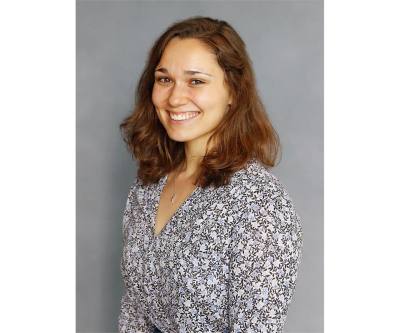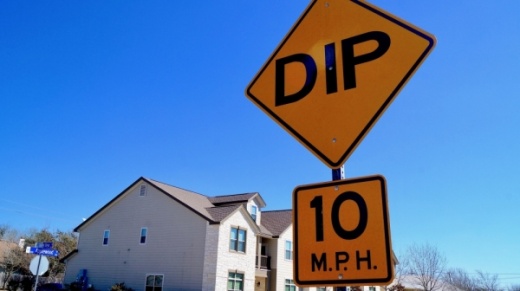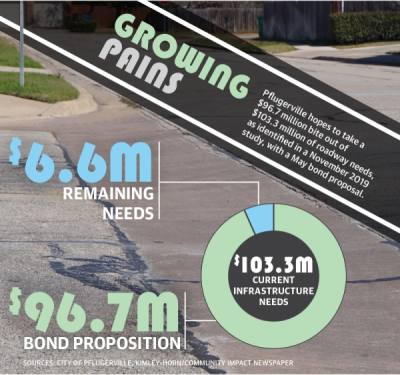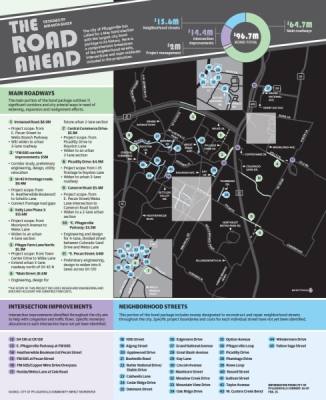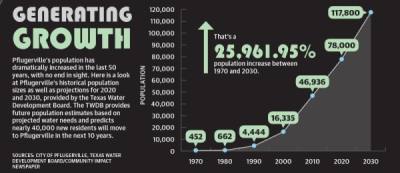Pflugerville City Council called for a May transportation bond election at a Feb. 11 meeting, following approximately six weeks of meetings and input provided by the city’s citizens bond committee. The committee, created Nov. 26, provided a list of recommended transportation and parks projects to council for consideration Feb. 11, with a sticker price of approximately $188 million. It was a price tag council members and residents in attendance expressed surprise over.
“The sticker shock of $188 million is not something we can just say, 'Eh, sure,'" Mayor Pro Tem Omar Peña said at council’s Feb. 11 meeting, prior to council’s official bond call.
Following a 2 1/2 hour discussion, council voted in favor of reducing the scope of the bond package to $96.7 million, allocated solely to road infrastructure.
Four residents spoke before council Feb. 11, each speaking largely against a proposed May bond election. Some pointed to concerns on how a bond rate would impact some of Pflugerville’s more vulnerable communities—such as its senior citizen population—while others requested the bond election be postponed entirely until November.
“I’m used to a budget with a forward view—some sort of vision as to where the next step’s going to be when you prepare a budget,” said Bob Reichenbach, a Pflugerville resident who spoke against the bond package. “And I don’t see us having done that in this particular case. As a senior, I only see my property taxes going up and up and up.”
Reichenbach added that, following council’s reaction to the size of the bond package and the nature of some of the projects, there were more questions than solutions being presented.
“I’m not used to a $190 million bond,” he said. “I’m used to a $20 million one, or something that you really have the project nailed down; you know the dollars; you know the time; and you’re going to do it; and it’s the right thing to do.”
Even after the reduced scope, the $96.7 million transportation bond marks the city’s largest in its history. Pflugerville's most recent bond elections—in November 2014, November 2015 and November 2018—approved packages of $53 million, $9.5 million and $21.1 million, respectively. City staff completed the last of its 2014 and 2015 projects in the fall, and City Manager Sereniah Breland confirmed Feb. 11 that all projects approved in the 2018 package have been completed, are under construction or in design.
A central question both residents and council members alike voiced is whether to call for a May election instead of a November one. Mayor Victor Gonzales initially suggested Feb. 11 to postpone a bond call until November, saying that while the bond committee did an excellent job compiling the information and the projects included were “imperative,” there were still concerns he had with some of the projects that could be better addressed with more time before a November bond election.
Pflugerville resident Timothy Bradberry also spoke in favor of a November election, citing the likelihood of increased voter turnout with the presidential election occurring at the same time.
“I just wanted to emphasize the importance I think of getting full participation by the citizens in such a large bond,” Bradberry said.
But some residents, while not necessarily in favor of the price point of the bond package, were in favor of the proposal because of the relief it could provide. Pflugerville resident Terry Moore said in an email to Community Impact Newspaper that with the volume of developments in the works—the Lisso tract, Lakeside Meadows, NorthPointe and Project Charm, to name a few—it is imperative the city’s road infrastructure is addressed sooner rather than later, specifically Immanuel Road.
“Please don't cut off your nose to spite your face,” Moore said, in response to some residents’ frustrations regarding Project Charm and its potential impact on surrounding neighborhoods. “I think it would behoove everyone to vote yes on this bond to alleviate current and future traffic in our area.”
Even with the May package’s current size and volume, the projects, if approved, are only a drop in the bucket compared to the city’s overall infrastructure needs. At a Nov. 12 council work session, Jeff Whitacre of Kimley-Horn presented to council city infrastructure's existing needs versus future needs. As of November, Pflugerville had $103.3 million worth of road reconstruction and repairs identified as needed to fix current congestion. In the next 10 years, Whitacre said the city would have to allocate $194.1 million to help mitigate its rapid growth.
“One of the things that we’ve consistently talked about on a regular basis is that we’re behind the eight ball,” Council Member Rudy Metayer said Feb. 11. “Everything you’ve brought up, we’ve talked about ad nauseam. These are issues we need to get addressed.”
In a citizens survey conducted by Gap Strategies from Jan. 15-27, 928 respondents answered questions regarding Pflugerville’s future and which issues city leaders should prioritize. Around 33% said city officials need to invest in infrastructure and roads.
“We make an implicit promise to everyone that lives in the city that we’ll maintain the roadways,” Council Member Mike Heath said. “We can put these bonds in place and we can prove our mettle to the community that we can actually process these projects, get them done, improve transportation and move forward.”


